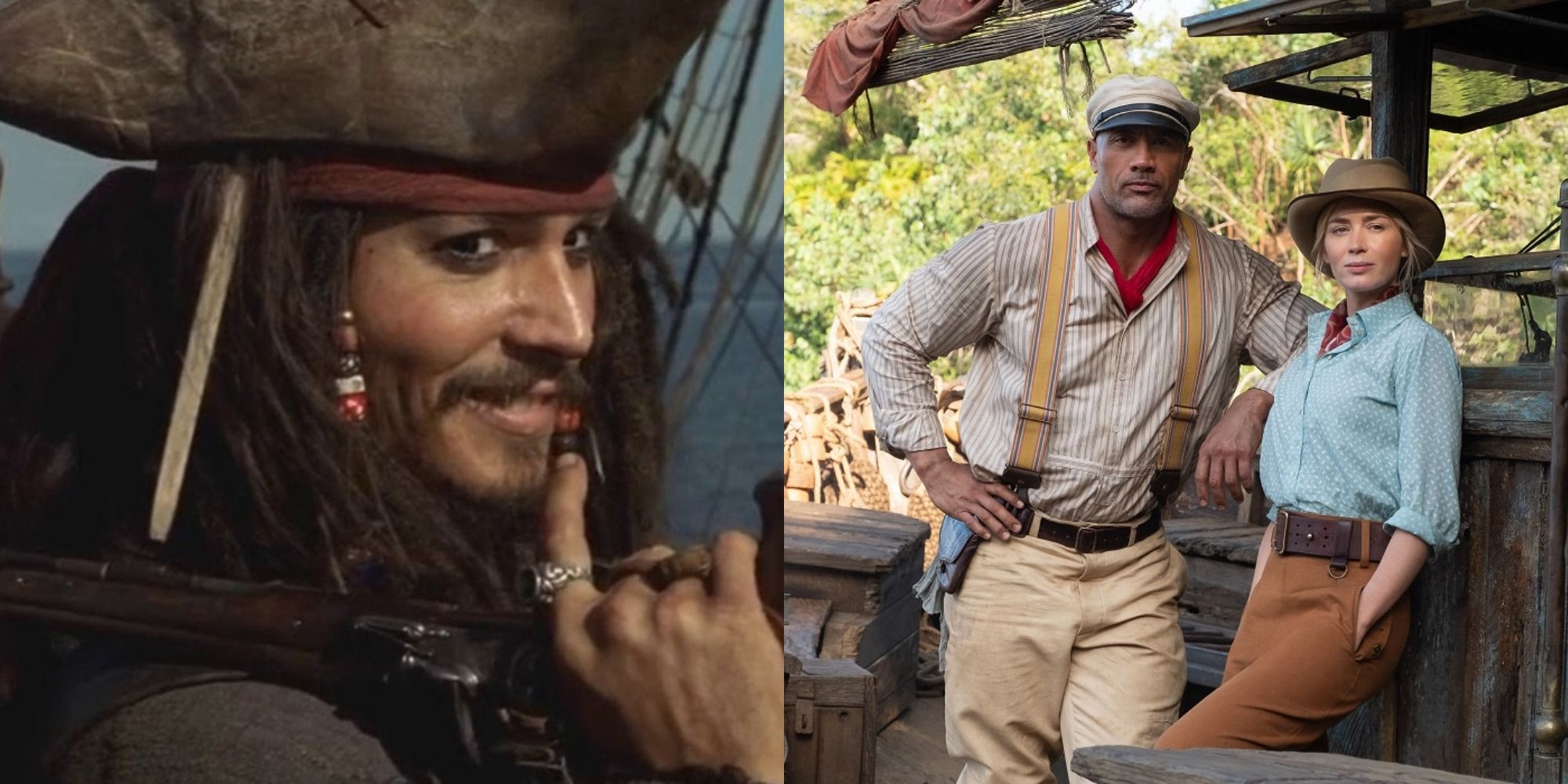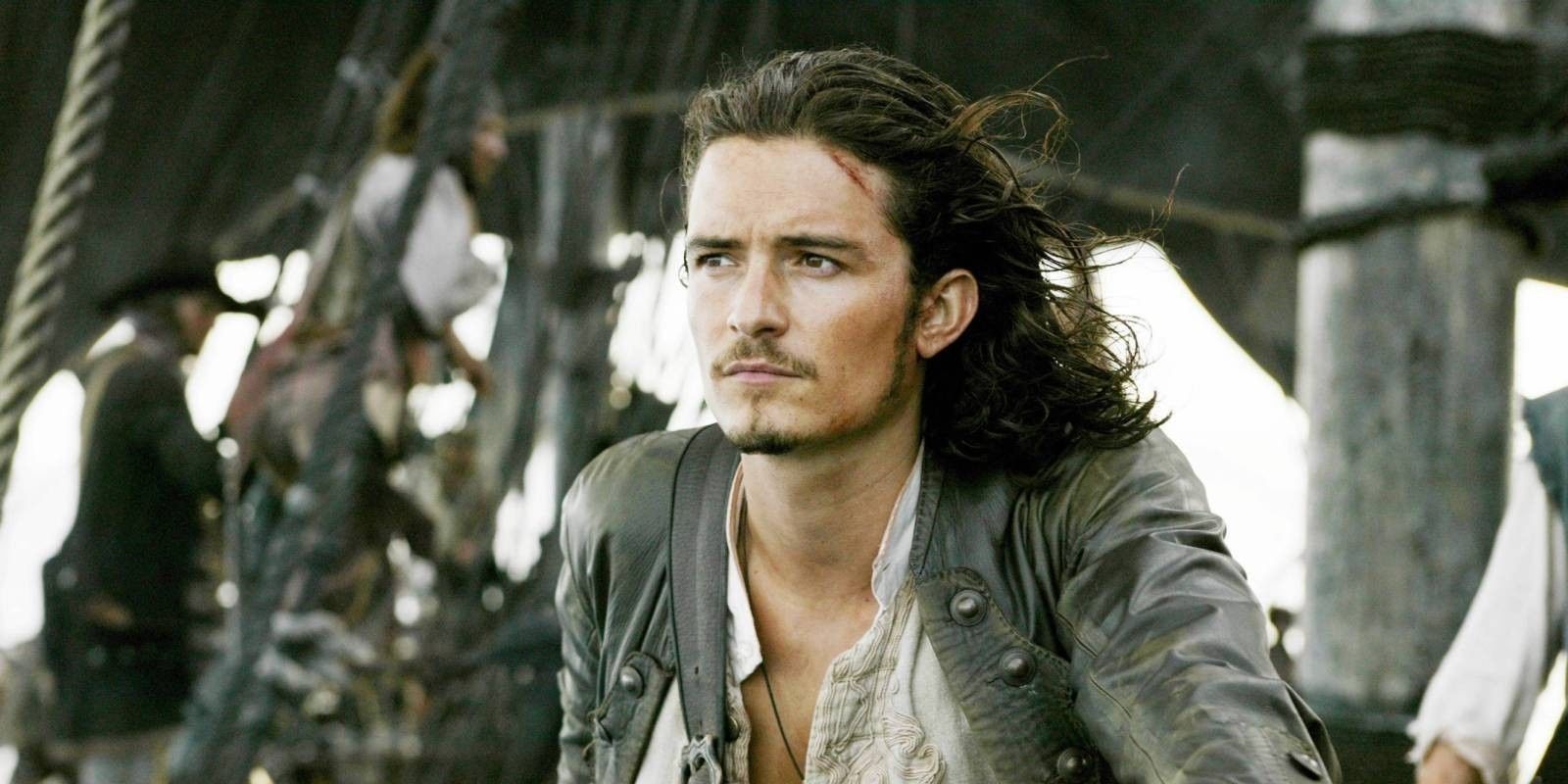There are a lot of similarities between Pirates of the Caribbean and Jungle Cruise, Disney’s latest live-action feature based on a theme park ride, but which one is better? The two films have much of the same spirit, a deep sense of adventure, and mythology that plays a heavy role in the overarching narrative. But while both movies share certain commonalities, Pirates of the Caribbean is a much better executed Disney movie than Jungle Cruise and it has a lot more to say in addition to its fantastic action.
In Jungle Cruise, Dr. Lily Houghton travels from England to Brazil in search of the Tree of Life, which has magical healing petals. There, she joins up with Frank Wolff, a boat captain who gives river tours and is her complete opposite in personality. Beyond being based on rides, Jungle Cruise and Pirates of the Caribbean are both water-based adventures that are driven by a story surrounding an ancient curse. And by the end of both films, all of the characters walk away with new perspectives on life and each other.
However, Pirates of the Caribbean is a much stronger film. It takes a few aspects of the Disney ride and transforms it into a story that stands on its own merits. Everyone from the main characters to the pirates are memorable, the special effects withstand the test of time and don’t look monstrously fake, and the story is more meaningful than it is in Jungle Cruise, which is fun but lacks any high stakes because there’s no real sense of danger for the characters. Pirates contends with identity and societal station: Will Turner and Captain Jack Sparrow are seemingly polar opposites in morals and personality, with Will believing he can be nothing like the man he ends up working with. But as the film progresses, Will’s ideas about who he is begin to change as he learns more about his family history; his actions in the film are perceived as being morally gray by the society and laws he previously upheld.
Him being a pirate descendant also challenges others like Commodore Norrington and Governor Swan to reassess their own biases about pirates (briefly), as well as what might be considered right and wrong in the wake of the film’s events. While Jungle Cruise gives Lily much to do, the film constantly reminds the audience she is, in fact, a woman in a way that is wholly unnecessary (Frank calls her “Pants” too many times). Whereas Pirates of the Caribbean doesn’t need to pat itself on the back for focusing on Elizabeth, who has a lot of agency in the story and her position as a woman in the 18th century is present without being overt. The film also has a much better romantic subplot than Jungle Cruise; there is pining and real heat between Will and Elizabeth, which is not the case for Lily and Frank. What’s more, Pirates of the Caribbean is fraught with themes about greed, honor, and loyalty. The curse of the Black Pearl’s crew is punished for seeking out a treasure that was not theirs to take and the film’s execution of that story is unique and thrilling, highlighting what they did wrong and paying off every subplot introduced at the start.
Jungle Cruise has a curse and a villain, but Aguirre the conquistador is not fleshed out as much as Captain Barbossa is, and whose rivalry with Jack Sparrow is more developed than that of Aguirre and Frank. There are plenty more examples, but the gist of it is that Jungle Cruise doesn’t hold a candle to Pirates of the Caribbean. The latter’s action sequences, stakes, characters, and story execution are superior in every way. The film’s score is also memorable, perfectly synchronized with the film’s scenes while elevating the sense of danger, tension, and genuine comedic beats (of which there are many).


